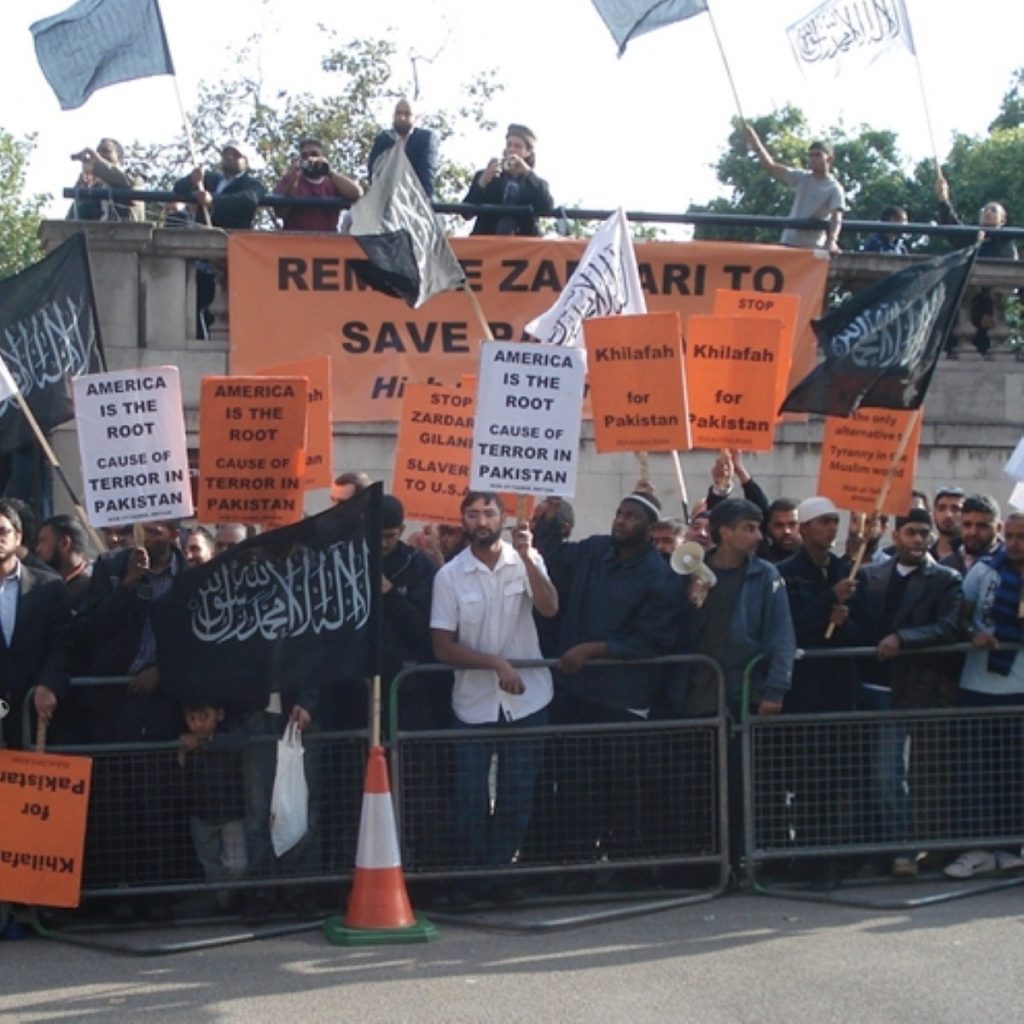Protestors blight Zardari visit
By Alex Stevenson and Liz Stephens
Pakistani president Asif Ali Zardari’s first major policy international speech has been overshadowed by protests against his leadership in London.
Around 200 demonstrators gathered outside the International Institute of Strategic Studies (IISS), holding placards which stated ‘Stop Zardari-Gilani slavery to UK’ and ‘America is the root cause of terror in Pakistan’.
Their chanting was clearly audible as he spoke on “strategic opportunities and challenges” faced by Pakistan.
In a letter to the IISS explaining the reasons for their protest against the man they call ‘Mr Ten Per Cent’, Hizb ut-Tahrir claimed that Pakistani politics has been “permanently usurped by [an] aristocratic elite”.
It said Mr Zardari’s Pakistan People’s party “represents a feudal aristocracy” which “stirs up red herrings of democracy, social justice and an end to army tyranny as its rallying cries”.
Ironically Mr Zardari hinted at his own frustration with US policy. He criticised American backing of the mujahedeen, religiously motivated fighters which ousted the Soviets from Afghanistan in the 1980s.
“What we are witnessing today is the outcome of that policy of the 80s and even earlier,” he said.
“The policy of using religious extremism as an instrument of war. We in Pakistan have paid a very heavy price for this policy.”
Mr Zardari added: “We all broke Afghanistan together. At the end of the day, humanity lost. Let’s all get together and mend it.”
The Pakistani president called on coalition forces in Afghanistan to do more to improve monitoring and policing on the Afghan-Pakistani border.
He told politics.co.uk: “I would appreciate it if we could man the borders better,” adding that negotiations were underway to improve matters on the porous border. The Taliban have been able to retreat from coalition forces’ grasp into the safe havens of the federally autonomous tribal regions in mountainous border areas.
Mr Zardari added that he hoped coalition forces would at least be able to “monitor or account for the crossings over the divide”.





-01.png)